The Model 71, a slightly improved version of the Model 86, was introduced with a brand-new cartridge, the .348 WCF, in 1934/35 with two loads, a 150-grain flatnose advertised at 2,880 fps and a 200-grain flatnose at 2,520 fps.

Both loads were intended to compete with semipointed or roundnose bullets that were generally preferred in popular smokeless cartridges of the day, including the .30 U.S. (aka .30-40 Krag), .30-06 and .303 British that featured 180- to 220-grain loads for larger game like elk or moose.
Extensive lobbying for a heavier bullet to deal with larger bears and close-range shots at elk and moose, where a rapidly departing bull often left few options other than a rear-end raking shot, finally resulted in a 250-grain load. The 150-grain load that shot somewhat faster and flatter over extended ranges was not exactly what serious hunters wanted for large game in the dark timber, and it was dropped early on. The 200-grain load was considered a compromise, but as popularity of the Model 71 waned, it too was ultimately dropped in favor of a 220-grain bullet at a bit less velocity, but it was quite suitable for larger game in dark timber.
The Winchester 250-grain flatnose Silvertip was advertised at 2,350 fps, although it hardly beat 2,150 in a 20-inch carbine barrel, or possibly 2,250 fps in a 24-inch rifle barrel. Since affordable chronographs were unavailable to handloaders of the day, save for ballistics laboratories, issues over somewhat exaggerated velocity claims were moot. Either way, the .348 WCF became widely respected for use against heavy game in the western half of the United States, Canada and Alaska.
While popularity of the Model 71 and the .348 WCF has eroded over the years, demand by enthusiasts for ammunition and rifles has led to limited production of rifles by USRAC – now Fabrique Nationale (FN) – in 1987 and occasional runs of Winchester ammunition and brass as demand dictates.
This story is from the Rifle Special Edition 2016 edition of Rifle.
Start your 7-day Magzter GOLD free trial to access thousands of curated premium stories, and 9,000+ magazines and newspapers.
Already a subscriber ? Sign In
This story is from the Rifle Special Edition 2016 edition of Rifle.
Start your 7-day Magzter GOLD free trial to access thousands of curated premium stories, and 9,000+ magazines and newspapers.
Already a subscriber? Sign In
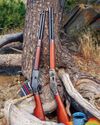
CIMARRON .32-20 Short Rifle & Carbine
In the heyday of Winchester Repeating Arms Company lever guns, it offered muskets, standard rifles, short rifles and saddle ring carbines.
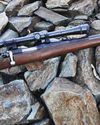
Remington's Model 722 and .222 Cartridge
It's easy enough to define what a varmint is, those pesky critters that tear up pastures, flower beds and all kinds of expensive crops people need for various reasons - most importantly, to make a living and/or something with which to feed themselves.

Coyote Bullets
What is Best for You?
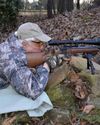
Remington's 5mm Rimfire Magnum
Shooting a Classic
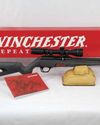
Winchester's New Wildcat
The Ultralight Rimfire Varmint Rifle
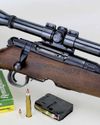
.223 Remington from .30-30 Winchester?
Multitasking for Varmints

LOADS FOR A .22 TCM
The .22 TCM first appeared commercially in 2012, chambered in a Rock Island Armory 1911-style handgun.
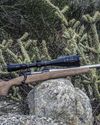
Everybody Loves Velocity
The 4,500-fps WSSM Project
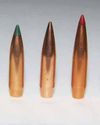
A BOLT-ACTION FRANCHI 224 VALKYRIE
Testing New Loads
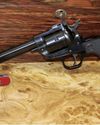
.22 Winchester Magnum Rimfire
Shooting Revolvers